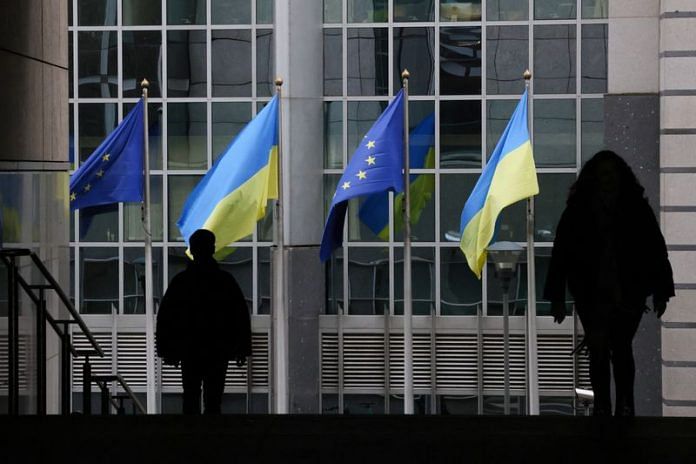By Crispian Balmer and Andreas Rinke
ROME (Reuters) – Diplomats preparing for next week’s Group of Seven (G7) leaders’ summit will need to be creative to find ways to leverage profits generated by Russian assets frozen in the West and help Ukraine, officials said on Friday.
The leaders of the United States, Japan, Canada, France, Germany, Italy and Britain meet from June 13-15, with discussion on how to best utilise the immobilised Russian funds near the top of their agenda.
The question has been under review for weeks and the G7 chiefs were hoping to make significant progress at their gathering in Borgo Egnazia, an exclusive resort in Italy’s southeastern Puglia region.
A German government official told reporters on Friday that he did not expect a final decision would be made at the summit, but a senior Italian official said diplomats were working hard to overcome numerous technical problems.
“I am confident that diplomatic creativity and the convoluted language of us diplomats can often help in these cases when there is a genuine political will,” said the Italian official, who has been following the discussions closely.
Around 260 billion euros ($281 billion) of Russian central bank funds are frozen worldwide, most of it in the European Union, generating 2.5-3.5 billion euros a year in profit.
Some EU governments would like to skim off the interest income and invest most of it in arms purchases and some in the reconstruction of Ukraine, which has been devastated by Russia’s 2022 invasion.
The United States is pushing instead to use the profits as a steady revenue stream to service a large loan of $50 billion that could be raised on the market.
Russia says any diversion of the profits from its frozen funds would amount to theft.
The Italian official said one of the problems is that the Russian funds are frozen in Europe under a sanctions regime that has to be unanimously renewed by all 27 EU governments every six months.
“If you make a loan that is repaid over 50 or 10 years, how can you use the profits of an asset that you know is frozen for only six months? This is one of the most challenging technical difficulties we are considering,” the official said.
“It is purely technical, it is not a matter of will.”
($1 = 0.9253 euros)
(Reporting by Crispian Balmer in Rome and Andreas Rinke in Berlin; Editing by Kirsten Donovan)
Disclaimer: This report is auto generated from the Reuters news service. ThePrint holds no responsibilty for its content.



